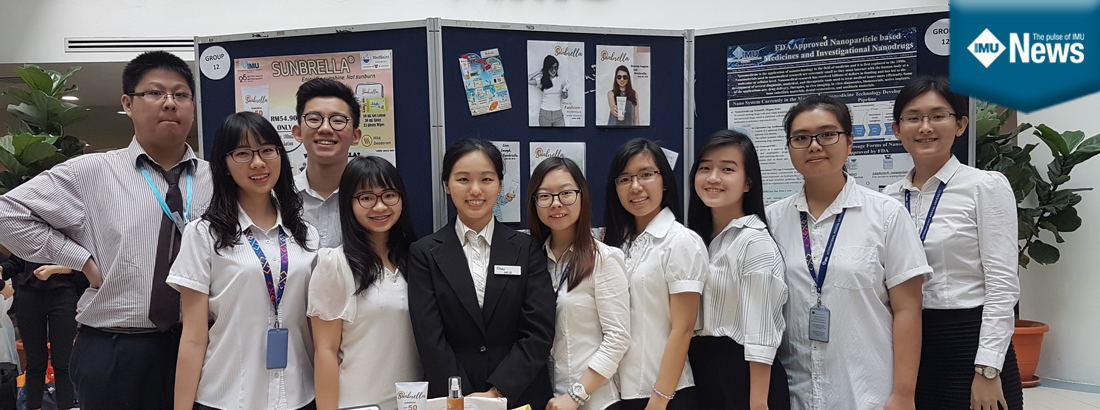Model Industry Concept (MIC) and Business Management Project Presentation (L to R) Eric Sii Hoe Yih, Amanda Wong Pei Yue, Gan Wee Jin, Hon Chian Ming, Jane Lee Jia Jing, Hoh Min Min, Keng Sue Yin, Janice Kou, Joyce Lau Chui Fern, How Chiu Her
The transition from being a student to a working professional can be quite daunting as it involves a big shift in lifestyle and expectations. Upon graduating in 2020 from the BPharm (Hons) programme at IMU, I was offered a job as a Provisionally Registered Pharmacist (PRP) in a pharmaceutical company and was later appointed as a Quality Assurance Pharmacist. As we all know, the pharmacy programme offers a wide range of opportunities and I had chosen to explore the pharmaceutical industry as my area of interest. In retrospect, I believe that IMU’s BPharm (Hons) programme had greatly helped in my transition to workforce and prepared me for my professional career in several important ways.
Firstly, its holistic curriculum honed my knowledge and technical skills that are required in the field. Apart from clinical and community pharmacy modules, the BPharm (Hons) curriculum at IMU also placed an equal emphasis in pharmaceutical industry-related modules which were particularly useful during my PRP rotation to different departments.
For instance, the pharmaceutics modules that covered the scientific concepts in pharmaceutical manufacturing helps me to better understand the associated challenges that are posed during the production of different dosage forms and enables me to propose appropriate solutions if there are any issues. The practical sessions from modules such as Medicinal Chemistry and Pharmaceutical Analysis, as well as during our research semester have introduced me to wide range of techniques used in the qualitative and quantitative analysis of pharmaceutical products, which are essential skills for product development and quality control of medicines.
The diverse teaching methods in the IMU BPharm (Hons) programme, not only helped to develop my competence, but also promoted critical thinking and problem-solving skills via active learning. These skills are imperative and remains central in my work under the Quality Assurance Department as it allows me to appraise and tackle a situation more logically and strategically. Not to mention, other skills such as communication, presentation, collaboration, and self-management learnt through vigorous course work have been a great asset as I take on or lead projects that I am assigned to at work.
IMU BPharm programme had helped me immensely in establishing myself as an industrial pharmacist. Thus, I highly recommend this programme to students who aspires to pursue a Pharmacy degree and looking to develop their knowledge and skills that match with the high standards of this field.
Written by Jane Lee Jia Jing











